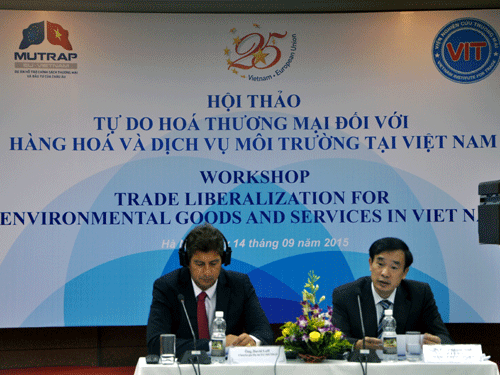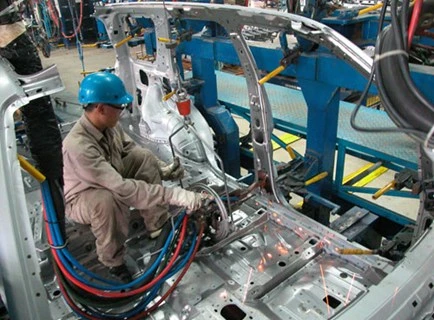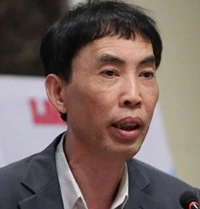 Pham Nguyen Minh (R) and EU-MUTRAP specialist David Luff chairs the workshop (Photo: baocongthuong.com.vn)
Pham Nguyen Minh (R) and EU-MUTRAP specialist David Luff chairs the workshop (Photo: baocongthuong.com.vn) Trade liberalisation for environmental goods and services has become the key to Vietnam's bilateral and multilateral negotiations, and international cooperation.
Pham Nguyen Minh, director of the Institute of Trade Research, said the World Trade Organisation (WTO), the Organisation for Economic Co-operation and Development (OECD), and the Asia-Pacific Economic Cooperation (APEC) have been the leading international organisations to promote trade liberalisation of goods and services.
In 2014, the world trade value for environmental goods and services reached 4 trillion USD, demonstrating a high growth rate. The value is expected to reach 10 trillion USD by 2020.
The US took the lead in investment in goods and services, reporting an export turnover of 106 billion USD in 2013 and an annual growth rate of more than 8 percent. The European Union, China, and India followed.
Minh told the Trade Liberalisation for Environment Goods and Services workshop, held recently in Hanoi, that the Vietnamese Government had passed several policies to enhance the development of environmental goods and services.
In 2014, the market value for Vietnamese goods and services was 20 billion USD, accounting for 0.5 percent of the world total. Vietnam took the 33rd position in the top 50 environmental goods and services markets in the world.
"Development is neither equal to the country's potential, nor local demand," he said, adding that Vietnam only focused on importing machines and technology from foreign countries.
Imports accounted for over 80 percent of the market value. Production of goods and services in water and waste-treatment had yet to be developed.
There were only 15 businesses operating in the environmental industry in Vietnam.
He added that other countries had found it similarly difficult to promote trade liberalisation of environment goods and services as there was no global standard definition of goods and services.
Tran Huy Hoan, a specialist from the European Trade Policy and Investment Support Project (EU-MUTRAP), agreed that Vietnam would have both opportunities and challenges in obtaining trade liberalisation in goods and services.
Hoan said that liberalisation of goods and services could help the country expand its market, promote investment, reduce environmental protection costs, and create more jobs.
Vietnam, however, did not have a list of environmental goods and services. Big initial investments and high technology requirements would increase competitiveness in the industry and make it difficult for domestic businesses to grow.
Chu Van Giap from the Department of Science and Technology said that the environmental industry in Vietnam had only taken baby steps, with a modest number of businesses and limited capacity.
The lack of policies and mechanisms for the industry's development had been one of the biggest barriers, Giap noted.
David Luff, a specialist from EU-MUTRAP, recently established a list of products which Vietnam could negotiate for reduced taxes or push its comparative advantage in the future.-VNA























